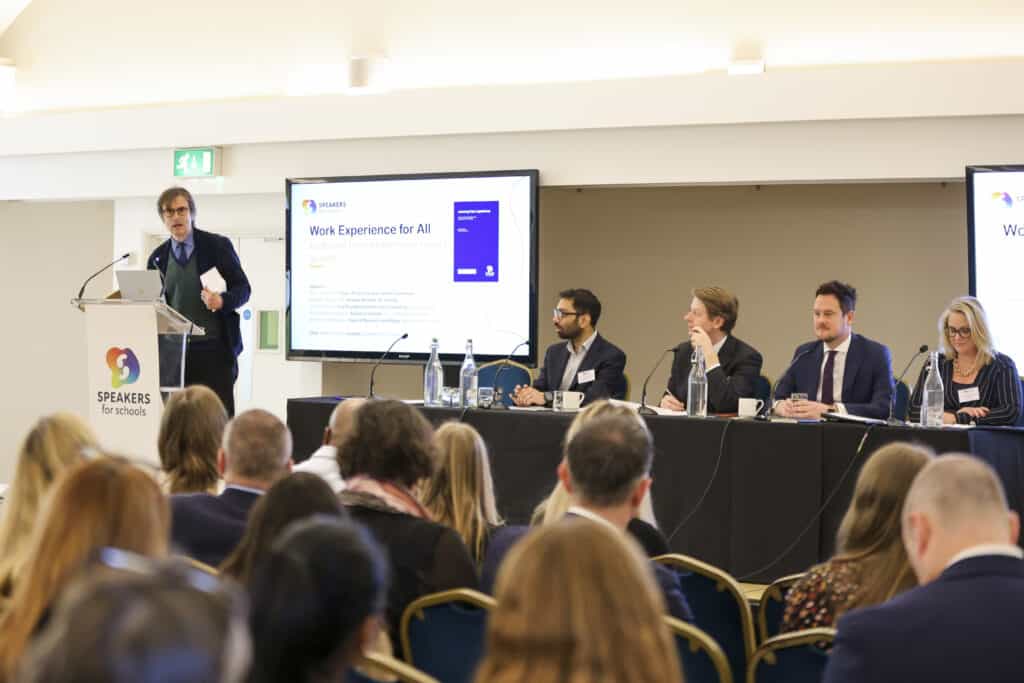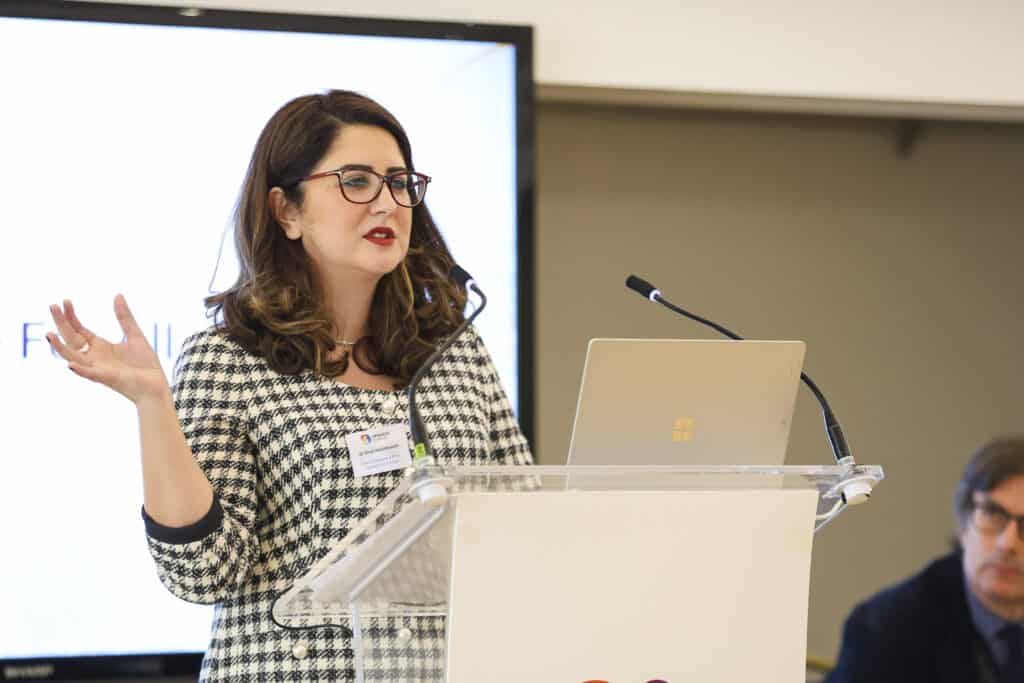
From tick box to ticking all boxes
Our response to the Education Select Committee’s report on careers education
By Dr Elnaz Kashef, Head of Research & Policy
Today, the Education Select Committee publishes its report on Careers Education, Information, Advice and Guidance (CEIAG).
We welcome the key points raised in the report; many of the Committee’s recommendations chimes with our Work Experience For All campaign which was our rallying call for high-quality work experience for all young people regardless of where they live or who their mum and dad know.
We have held several events, reports commissioned and panels on this subject, including Robert Peston, our founder, giving evidence as a part of this enquiry. I was heartened to see his evidence feature so prominently in this report.
Here are my top takeaways:
More than ticking a box
A key proponent of our work experience campaign was to ensure that quality stays the focus of any careers policy recommendation. Efforts to expand the work experience offer must not become a tick box exercise to fill numbers. Work experience must be high quality and tailored to students; gone are the days of making tea or sweeping floors.
The report is significant in this aspect as it acknowledges the entrenched focus on attainment standards within our education system at the expense of careers education and vocational opportunities. To bring this to life, the report cites that currently, schools spend £2 per pupil on careers which amounts to £5,000 per school. This falls significantly behind investment in skills and careers systems around the developed world, and the impact of this shortfall is already felt by the lack of opportunities and confidence for the future from young people’s perspective.
Work experience counts
Our research underlines the impact of participation in work experience on employment outcomes for young people; in terms of salary increase when they are in full-time employment, reduction in chances of becoming NEET and developing essential transferable skills required by employers in the 21st-century labour market such as communication and problem-solving.
Yet only 50% of young people accessed work experience last year. Our YouGov research shows that young people from private education are twice as likely to have done multiple work experiences. This is simply unacceptable; a shared sentiment by young people who gave evidence to the Committee.
The Committee’s report also recommends that the DfE develop a toolkit to identify what constitutes meaningful work experience and develop a national platform for work experience opportunities, including virtual opportunities.
In addition, the report highlights the importance of virtual experience opportunities in supporting bigger reach, especially in areas with limited access to employers and opportunities. Virtual work experience closes the gap and offers more opportunities to students nationwide. But it should complement in-person placements, not replace them.
Speakers for Schools agree that we need to utilise technology to reach out to a wider number of young people that could not otherwise access work experience and already accumulated examples of best practice where young people linked with employers in other parts of the country and gave us positive feedback about the usefulness of virtual encounters.
Build capacity
We need to make it easy for everyone to access work experiences, or we will lose motivation and real engagement from employers, educators and young people. This is especially the case for young people from more deprived communities and with limited access to networks and opportunities.
It is vital to understand the challenges they face and provide a solution that paves the way for them and for their schools to be able to engage with similar experiences that their more affluent peers have access to.
One key recommendation from the Social Market Foundation’s report was the necessary investment to ensure every young person gets at least one work experience at 14- 16 and one at 16-18 at an annual cost of £75 million. This covers the economic cost of building a universal programme from scratch to provide two placements per individual student and includes the cost to coordinate at a national and regional level and school resources. Investment is critical to ensuring capacity is built, and quality work experience is delivered and measured.

The power of role models
‘If you can see it, you have a chance to be it’, the young people that gave evidence at this enquiry spoke about the power of role models and the power of seeing someone they can relate to; raises aspirations and demystifies career pathways.
We are particularly proud of our Inspiration programme, which has over 1,500 speakers, from FTSE CEOs to scientists, footballers and lawyers. These experts regularly give their time and expertise to inspire the next generation and raise their aspirations.
Test locally, scale nationally
Working up to universalism means that work experience can be rolled out phase by phase. With social mobility in mind, this can start with areas of disadvantage. Should the government take these recommendations on board, work experience should be assessed, with evidence used to adjust the implementation as needed.
Next steps
We are buoyed to see the report endorse many recommendations set out by ourselves as part of our campaigning efforts. Today’s report shows the gaps in the current state of careers education and begs the question, why the government hasn’t taken careers education more seriously yet.
As a charity, we stand ready to help implement these recommendations and ensure all young people have access to the inspiration and experience they need to succeed, no matter what their background is.
The benefits will not simply impact young people through improving employment outcomes and raising aspirations but will nurture a skilled future workforce and support a stronger economy. This is something major political parties have committed to, and we think for future growth and a skilled economy we need to start in schools and provide young people with information, advice and experiences they need to secure the jobs of the future successfully.